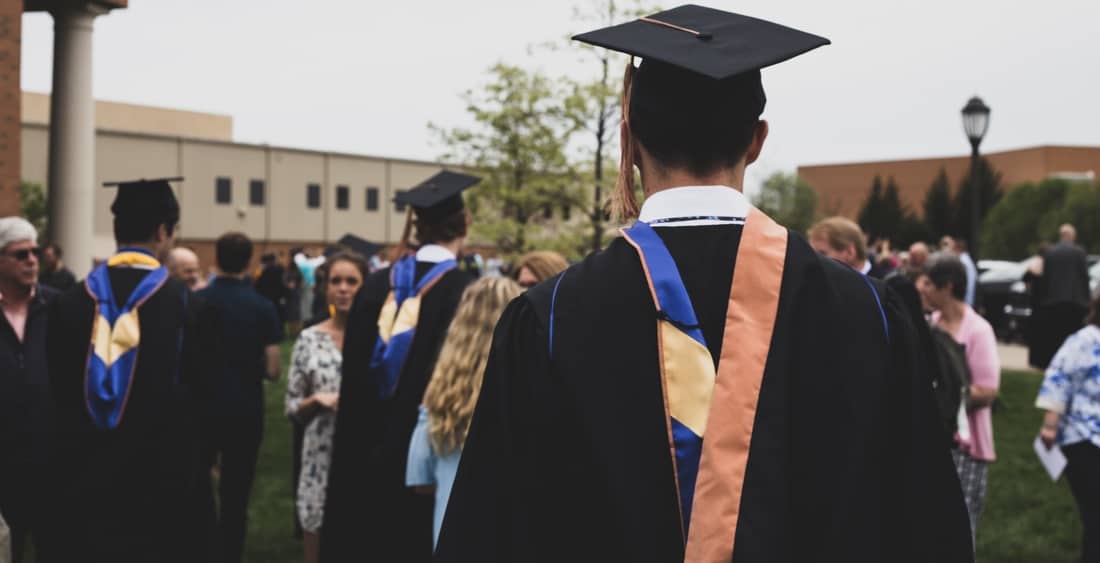


The pandemic’s disruption of the traditional college experience combined with daunting prospects of student loan debt have left students wondering: Is college really worth it?
From an economic perspective, the answer is yes. Higher education still has the ability to be an engine of upward mobility, opening up new opportunities to students.
But these outcomes are not guaranteed by every program at every university. Such outcomes depend on where students invest their tuition dollars. The ultimate problem with higher education is not simply cost but the risk that a student’s investment won’t pay off in life and the workforce.
Many programs at Idaho’s public universities offer a positive return on investment to students through strong job prospects and high earnings. But dozens of other programs leave students with too much debt relative to their post-graduation earnings.
Our latest report, “Bad Returns: How Idaho College Degrees Fare on Debt-Earnings Tests” equips students to mitigate risk in their college investments.
First, students need to recognize that the program they choose matters. Some degrees contribute to greater earnings than others. Degrees in healthcare, business, and engineering related disciplines are the best bets. The best performing bachelor’s degree in Idaho is clinical/medical laboratory science/research and allied professions at Idaho State University. Two years after graduation, these graduates are earning more than $54,000 per year with $15,000 in debt. Idaho State University also boasts the best performing business degree — graduates of the master’s degree in business where students earn about $61,500 and accumulate $20,500 in debt.
Aside from STEM and business fields, certain humanities and trade-oriented degrees also offer an excellent return. The best performing humanities degree is College of Southern Idaho’s general associate degree in liberal arts where students earn $20,500 but only have $8,500 in debt. College of Western Idaho’s precision metal working associate program is ranked 3rd in Idaho for best return on investment. These students earn $38,829 two years after graduating while amassing only $10,000 in debt. Overall, associate degrees are an excellent bet for Idaho students.
Students can reduce financial risk by avoiding the 19 worst performing programs assessed as “poor” or “terrible.” Eight of these programs are at Idaho State University: liberal arts (bachelor's and associate degrees), anthropology, English, social work, geosciences, sociology, and history. The worst performing program in the state is Boise State University’s student counseling and personnel services where students have more than $57,000 in debt but are earning less than $35,000 annually two years after graduation. Other poor performing programs at BSU include English, natural resources conservation and research, and design and applied arts.
Six of the worst performers are at University of Idaho: intercultural/multicultural and diversity studies, fine and studio arts, parks and recreation management, international relations, political science, and law, although the nature of the legal discipline may not be suited to an assessment just two years after graduation.
Numerous other programs are considered “mediocre” and are not the most prudent choice for students. Among them are Boise State University’s degrees in sociology, anthropology, history, and special education and the University of Idaho’s in sociology and history.
Second, students need to recognize which programs are ideologically driven. Many of the worst and mediocre performing programs are dominated by left-wing faculty and captured by diversity, equity, and inclusion (DEI). DEI is the mechanism by which critical social justice (CSJ) is applied to universities by implementing policies and programs. Both DEI and CSJ emphasize that American society is irredeemably racist or sexist, group identity must transcend individuality, and equity must be celebrated while achievement is stigmatized.
As education researcher Dr. Jay Greene has explained, DEI crowds out academic pursuits, does not contribute to student well-being, and creates a hostile campus climate. Department mission statements and program learning outcomes that include promotion of DEI or social justice rather than academic knowledge and skills are indicators of an ideologically-captured program.
For example, BSU’s sociology department says it’s dedicated to “social justice,” and the history department prioritizes “diversity and inclusivity.” Students who desire an intellectually honest and academically rigorous education can avoid wasting their money and taxpayer-funded loans on programs captured by DEI.
Third, financial outcomes are not the only measures of program quality. Personal fulfillment and life satisfaction can be a higher value for many students. As a former philosophy, religion, and ancient Greek and Roman history major, I understand the immense value found in studying the humanities. These programs can train students to think, write, and articulate.
However, not all humanities programs do so. Some are ideologically captured and do not foster intellectual growth or pursuit of goodness and truth. Students seeking personal fulfillment through a humanities degree can reduce their financial risk by unbundling their education. For example, students can learn to code or gain another bachelor’s-level skill as a backup plan. Or students can find competitive fellowships or employers to pay for their education in a respected humanities program.
The surmounting cost of higher education is a worry that keeps students up at night. If you’re one of them, “Bad Returns” will help you sleep a bit easier by showing which college degrees are safe and smart investments in your future.
Idaho’s public universities are subsidized by taxpayers and should be held accountable for poor performing programs that harm citizens and the economy. If public officials fail to act, students and families can still vote with their wallet by circumventing financially risky ideological programs to ensure their hard earned dollars are spent wisely.

